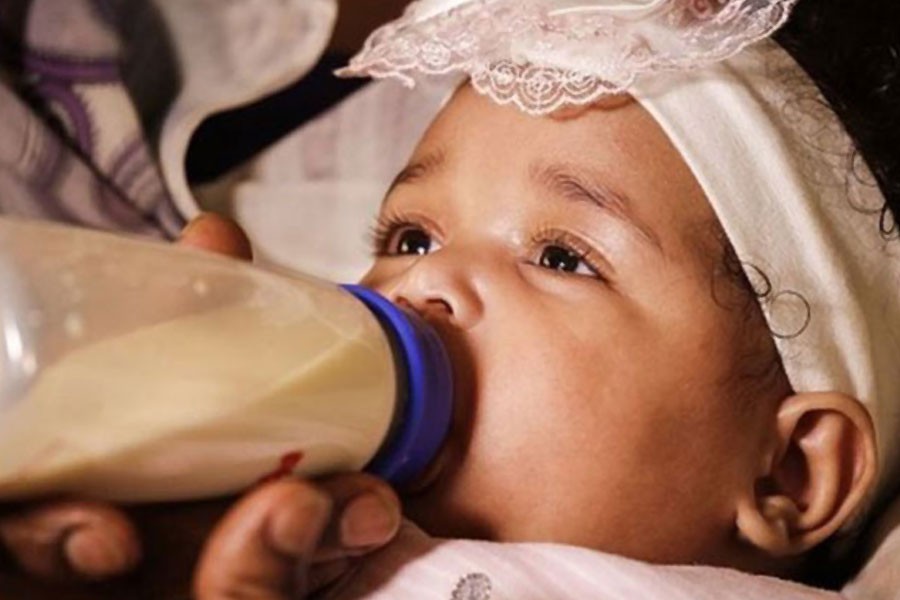
Published :
Updated :

The purpose of creating a human-milk bank is to assist critical neonates. Mothers' milk pack is for supporting kids who are in critical care and can't drink and digest regular milk for their survival. Using human milk is not an issue in the West as children's lives and their safety comes first in Western society, not socio-religious ideologies. It is a religious sentiment of conservative Bangladeshis who are not ready to accept the advantage of this new facility that is useful to save a child's life.
Nevertheless, it will take time to re-evaluate the positive sides and use of human milk. Bangladeshi doctors always recommend breastfeeding and any healthy mother's milk, if human milk is available. Before bringing rules and orders, the religious minister could think deeply about the reasons behind setting up the human-milk bank and who the users and beneficiaries will be. Such a bank, when set up, would help critical children during emergency in the same way blood banks do critical patients. And it also could change the social behaviour of Bangladeshis over the period. In this case, to draw attention of the government, Bangladeshi doctors could demand it in one voice.
Many Bangladeshi children survived on foster mothers' milk. For example, I am narrating one personal experience here. How human milk was helpful to save my critically ill younger sister's life. I heard that my mother was seriously sick of pneumonia and could not support her ailing newborn child, so my parents had to find a foster mother to feed her breast milk and save their child's life. Still, the foster mother is deeply regarded in our family for her contribution to my weak mother and sickly sister. So, this issue needs a lot of promotion like Meena cartoons. To reach mass people, rural and urban, documentaries, audio-visual, and multi-media can be used.
Furthermore, to make it clear why setting up a human-milk bank is necessary, all newspaper editors can write columns interpreting its health impact on the newborn.
In order to materialise the plan of setting up a human-milk bank, a few issues need to be considered carefully; for instance, how to make coordination between the bank and Bangladesh government, how to build organisation plans from the grassroots to reach common people, and what the ways of planning and strategising news follow-up through media would be. Moreover, engineering the process of restoration of human milk from the societal context, its systematisation approach, and investigation of each action before formulating the operation are essential.
The writer is a Doctoral Candidate working on peace and conflict resolution through science at Curriculum Studies and teacher, Development department, Ontario Institute for Studies in Education (OISE), Research Assistant, University of Toronto, and founder-president of Volunteer Association for Bangladesh-Canada.


 For all latest news, follow The Financial Express Google News channel.
For all latest news, follow The Financial Express Google News channel.